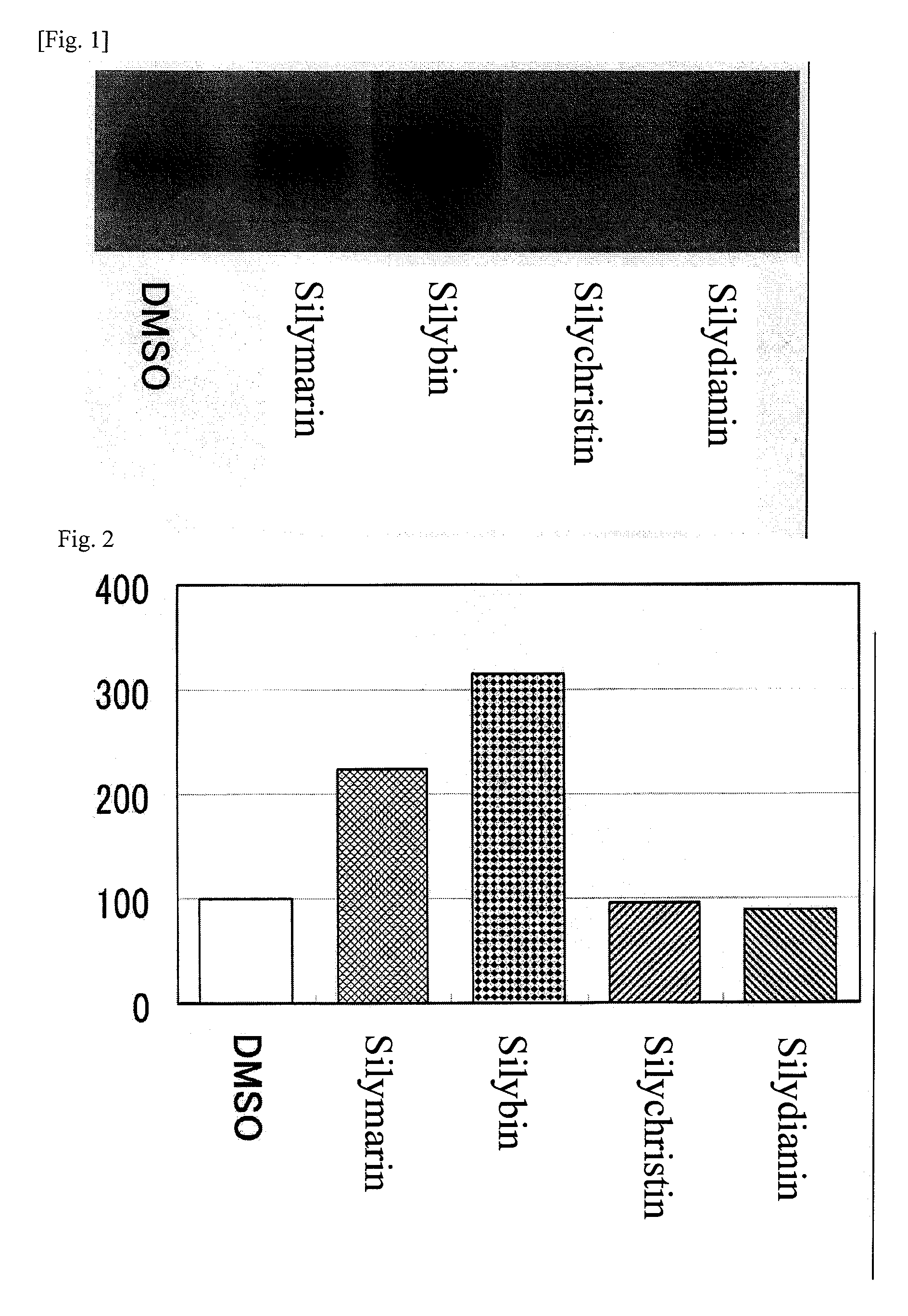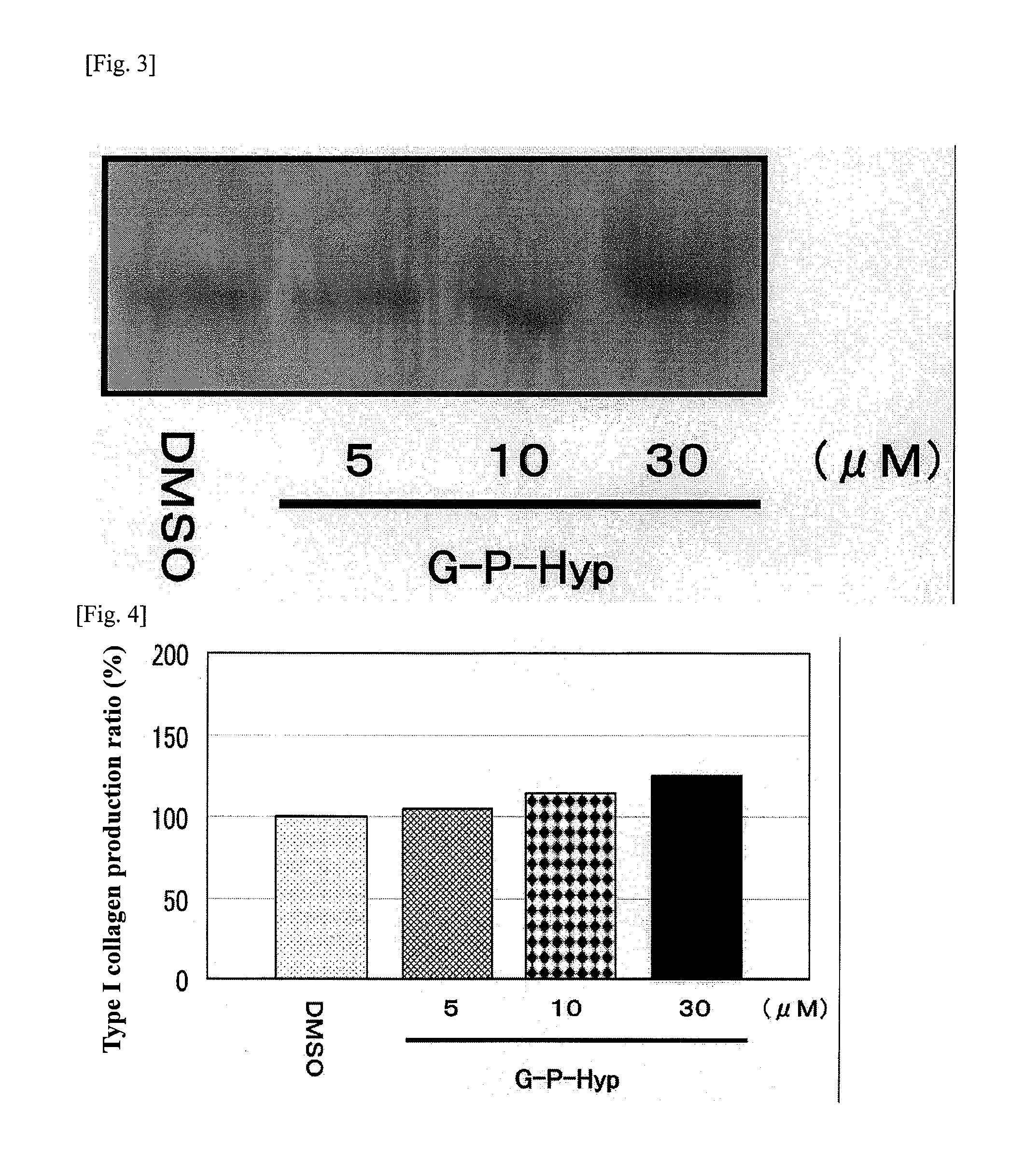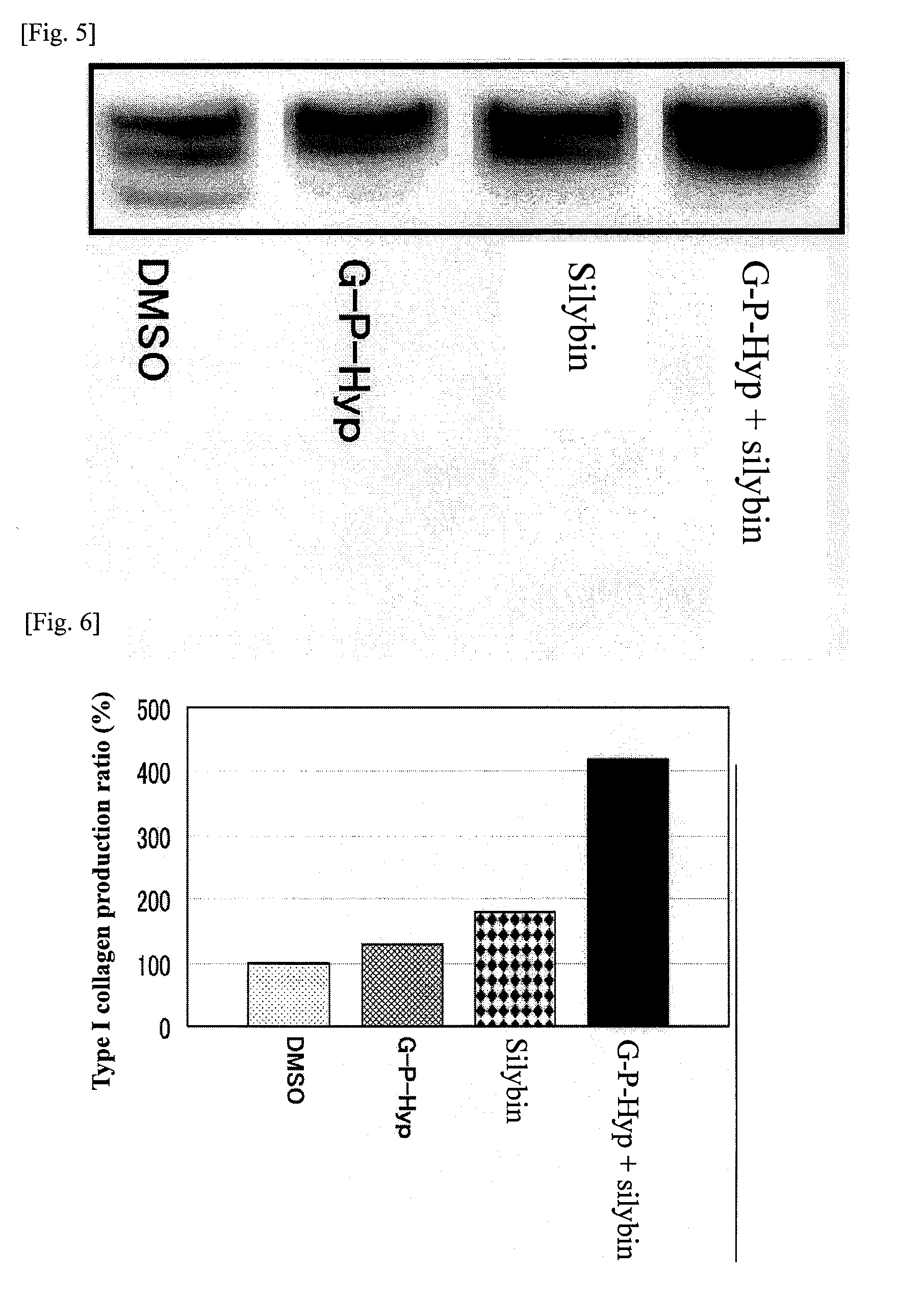Composition for acceleration of type i collagen production
a collagen and type i technology, applied in the field of composition, can solve the problems of low nutritional value, reduced collagen, weakening of blood vessels, etc., and achieve the effects of promoting collagen production, excellent effect in promoting type i collagen production, and improving skin resilience and elasticity
- Summary
- Abstract
- Description
- Claims
- Application Information
AI Technical Summary
Benefits of technology
Problems solved by technology
Method used
Image
Examples
example 1
Evaluation of Effective Ingredient Contained in Silymarin, Involved in Promotion of Type I Collagen Production
[0114]Three-dimensional human skin models were treated with 10 μg / ml of silymarin and also with silybin, silychristin and silydianin at a concentration of 10 μM, respectively, and the amount of type I collagen was measured by means of Western blotting. FIG. 1 shows the detected bands, while FIG. 2 shows a graph indicating the numerical values of detected bands.
[0115]When treated with 10 μg / ml of silymarin, and with silybin, a component contained in silymarin, at 10 μM, production of type I collagen was promoted to 2.3 times and 3.2 times, respectively, compared to the level in the control that was not given any treatment (FIGS. 1 and 2). On the other hand, treating with silychristin and silydianin, both components contained in silymarin, at 10 μM, resulted in type I collagen production of 0.95 time and 0.9 time, respectively, compared to the level in the control that was not...
example 2
Evaluation of Actions to Promote Type I Collagen Production from Use of Gly-Pro-Hyp Alone and Combined Use of Gly-Pro-Hyp with Silybin
[0116]Three-dimensional human skin models were treated with Gly-Pro-Hyp at concentrations of 5, 10 and 30 μM, and the amount of type I collagen was measured by means of Western blotting. FIG. 3 shows the detected bands, while FIG. 4 shows a graph indicating the numerical values of detected bands. Similarly, measurement was performed when 30 μM of Gly-Pro-Hyp was used alone, 5 μM of silybin was used alone, and 30 μM of Gly-Pro-Hyp and 5 μM of silybin were used in combination. FIG. 5 shows the detected bands, while FIG. 6 shows a graph indicating the numerical values of detected bands.
[0117]Treating with Gly-Pro-Hyp at 5, 10 and 30 μM resulted in type I collagen production of 1.05 times, 1.15 times and 1.25 times, respectively, compared to the level in the control that was not given any treatment (FIGS. 3 and 4). Accordingly, it is clear that, although ...
example 3
Evaluation of Actions to Promote Type I Collagen Production from Use of Lys-Thr-Thr-Lys-Ser, Gly-His-Lys and Gly-Glu-Pro-Arg Alone and Combined Use of Lys-Thr-Thr-Lys-Ser, Gly-His-Lys and Gly-Glu-Pro-Arg with Silybin
[0119]Three-dimensional human skin models were treated with Lys-Thr-Thr-Lys-Ser, Gly-His-Lys and Gly-Glu-Pro-Arg at concentrations of 10 and 30 μM, respectively, and the amount of type I collagen was measured by means of Western blotting. FIG. 7 shows the detected bands, while FIG. 8 shows a graph indicating the numerical values of detected bands. Similarly, three-dimensional human skin models were treated with Lys-Thr-Thr-Lys-Ser, Gly-His-Lys and Gly-Glu-Pro-Arg alone at 10 μM each, with silybin alone at 5 μM, and with Lys-Thr-Thr-Lys-Ser, Gly-His-Lys and Gly-Glu-Pro-Arg at 10 μM each in combination with silybin at 5 μM, and the amount of type I collagen was measured by means of Western blotting. FIG. 9 shows the detected bands, while FIG. 10 shows a graph indicating th...
PUM
| Property | Measurement | Unit |
|---|---|---|
| pH | aaaaa | aaaaa |
| concentration | aaaaa | aaaaa |
| composition | aaaaa | aaaaa |
Abstract
Description
Claims
Application Information
 Login to View More
Login to View More - R&D
- Intellectual Property
- Life Sciences
- Materials
- Tech Scout
- Unparalleled Data Quality
- Higher Quality Content
- 60% Fewer Hallucinations
Browse by: Latest US Patents, China's latest patents, Technical Efficacy Thesaurus, Application Domain, Technology Topic, Popular Technical Reports.
© 2025 PatSnap. All rights reserved.Legal|Privacy policy|Modern Slavery Act Transparency Statement|Sitemap|About US| Contact US: help@patsnap.com



